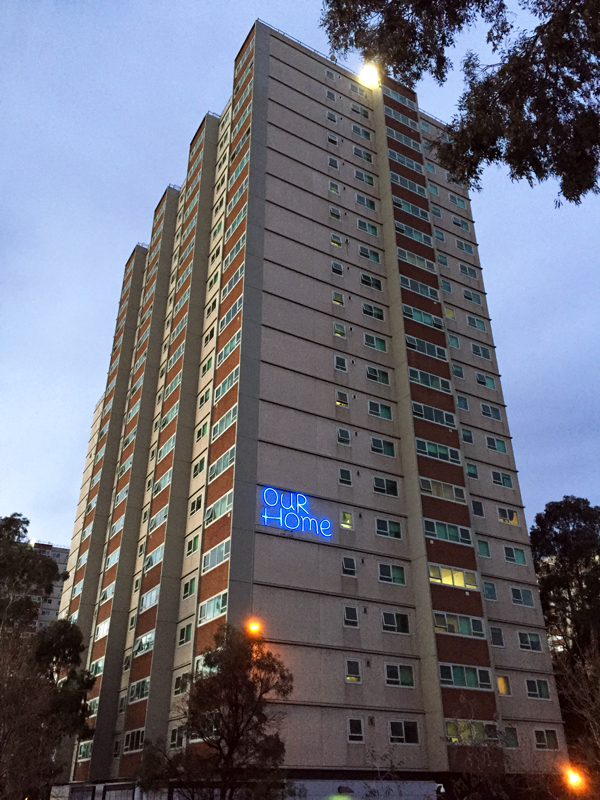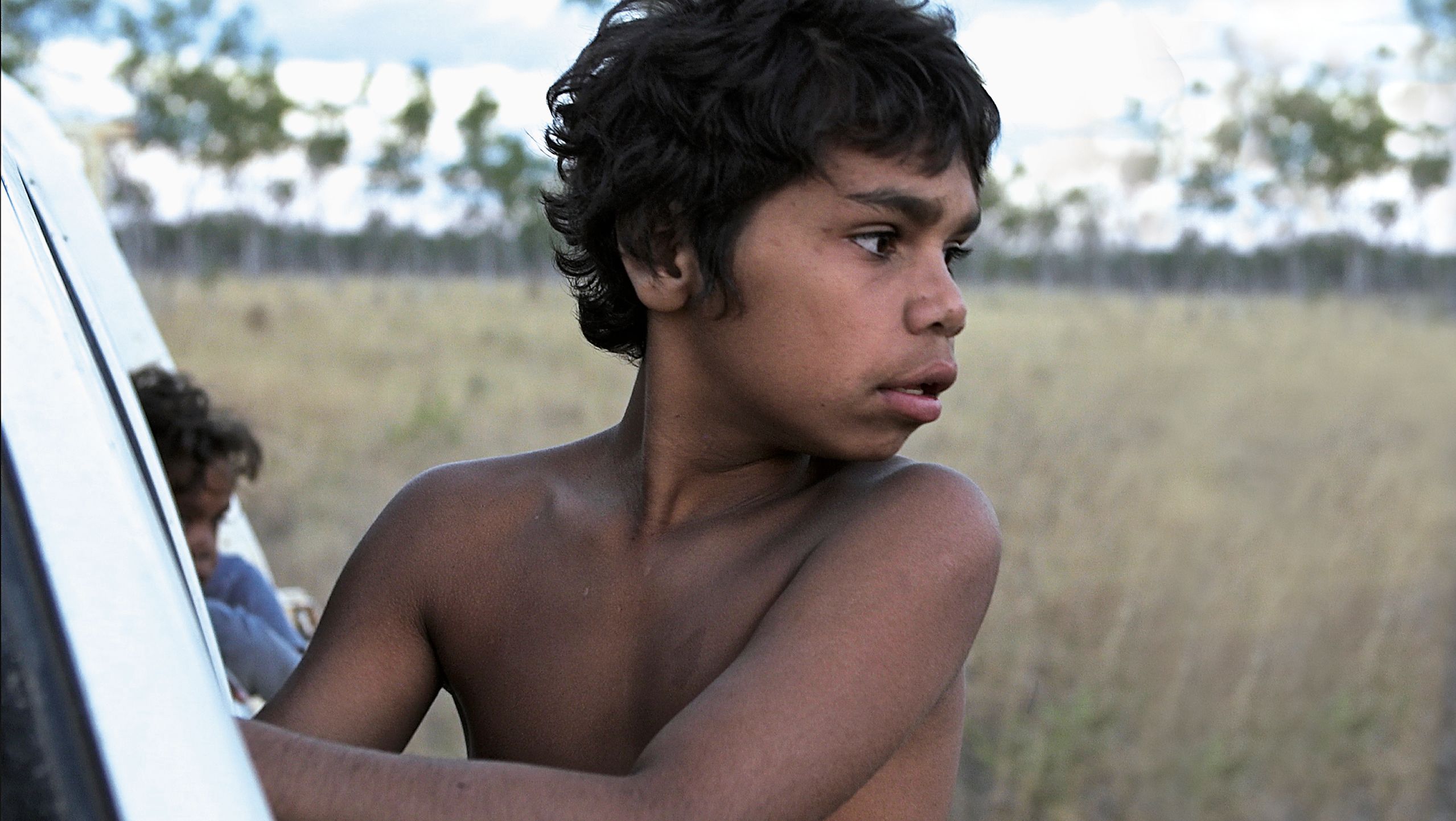Tenants need to be listened to: community support – not heavy-handed policing
08/07/2020 • Leo Patterson Ross
On the weekend over 3,000 public housing tenants in Melbourne were put into enforced lockdown by the VIC government due to a spike in COVID-19 in the area. This lockdown affects 1,345 homes in nine buildings in Kensington, Flemington and North Melbourne.
The lockdown was effective immediately and significantly more restrictive than lockdowns in other areas. The lack of any warning caused a great deal of confusion and fear for residents. The immediate lockdown also led to massive practical problems for the affected tenants, ranging from lack of food and medical supplies, to separation from family and interpreters, to not being able to go to their jobs.
The tenants have reported that when food supplies eventually arrived they were inadequate and culturally inappropriate. Some of the food provided was out-of-date, and pork was sent to Muslim families. Others reported cereal without milk, or fillings but no bread. Residents and community supporters have instead organised volunteer-run mutual aid deliveries of food and other essentials. However some of these deliveries have not been allowed into the buildings.

Ahmed Dini, a resident of the North Melbourne apartments and a social worker told the Guardian:
"People are angry and they have every right to be angry. I think a lot of that anger is based on the decision that was made to have the lockdown effective immediately."
"The police went into the community within 15 minutes. Woman and children who were downstairs, once they saw [the police] they just ran into the building. They didn’t know what was happening. There were people locking their doors and say 'don’t ever call the police'. There was so much misinformation. There was so much fear."
There has been large and ongoing police presence – over 500 police per shift are reportedly deployed both inside and outside the buildings. Although heavy-handed policing has sometimes been a feature of the response to COVID-19 in other places, it is hard to imagine that an approach such as this one would ever be used in a community of predominantly white people and/or home-owners in wealthy suburbs. It is not coincidence that the harshest lockdown in Australia has been imposed on renters in poor communities, where many people are refugees.
I don’t believe it’s the case that government officials were looking to stick it to the people of this community. Rather, this community is being punished now for past decades of neglect in building enough public housing, let alone good, spacious public housing. Awatif Taha says of his experience:
"My neighbours and I have been frightened because we live in such crowded conditions. We have just two lifts for 180 flats in my building."
"We have nine flats on each level, and 20 levels. We share the laundry between nine flats. So it has been a scary situation – when you open your door, or when you touch something in the lifts. We have been really careful but we are living so close together, and sharing so much, so we know it is risky."
This has led to a situation in which some members of a community – people living in these apartments – are now facing extremely restrictive lockdown apparently for their own safety. Others in the community are not facing this same level of restriction because their housing and community infrastructure is of a higher standard. This is punishment simply for the crime of being poor in a society that places the blame for poverty on the people experiencing it.
Tenants of the locked down homes have called for a different approach – one based on respect and medical support, rather than punitive policing. Resident Hiba Shanino has written eloquently, "we knew about Covid-19 in the towers and were taking care, but instead of support there was only police." Residents want to do the right thing to fight COVID-19. They have asked for a testing station to be set up within walking distance of their homes, without police presence.
After the fact, the VIC government has started moving to provide the kind of support that was needed from the beginning. Some commentators are trying to use this to show that it really has been for the residents’ protection. Let’s be clear – the residents needed protection. But leaving families without food is not protection.
The over-reliance on criminal systems to deal with public health crises is both unfair and clumsy. We have also seen analogues in response to mental health crises, domestic violence and more. Police officers are not correctly trained to solve these problems. Sending in officers, even as well-meaning as some are, whose training is not appropriate too often leads to more suffering for people who already face racism and poverty – particularly Aboriginal Peoples and recent migrants.
The heavy-handed approach is particularly dissonant at this time. All over the world, calls are growing to reduce governments’ reliance on force, and instead use funds for supportive approaches that are ultimately more effective and have better outcomes for all. Black Lives Matter began as a widespread protest against police brutality towards Black Americans, but has grown into a global social movement. Thousands of Aboriginal Peoples and their supporters continue to rally in Sydney, Newcastle and elsewhere to demand justice and an end to Black deaths in custody.
As part of developing a new approach to social justice in this country, there have been calls for changes to how we understand our history, and a greater focus on Aboriginal history in Australian schools. Instead of more police, we need more resources for teachers and for health care workers. And these community resources must be appropriate for the communities in which they are used. In Indigenous communities, this means resources in Indigenous Languages, and institutions controlled by Indigenous People themselves. Similarly, in migrant communities, resources must be developed under the leadership of the community, and in languages other than English. The knowledge and skills are present in the communities themselves. In the locked down Melbourne buildings, residents were able to translate Covid-19 information sheet into 10 different languages in 24 hours.

Dujuan, in the film In My Blood It Runs
Tenants’ Union staff recently watched the excellent new documentary In My Blood It Runs. The film follows ten-year-old Dujuan as he shares his wisdom of history, and also comes perilously close to incarceration. We were inspired to chip in a donation (from our own pockets) of $200 to establishing an Arrernte-led school in Mpweringke Anapipe. We encourage you to watch the film – currently available on ABC iview – and find out more about the film and campaign here.
I have also been reminded of Grenfell which recently marked a 3 year anniversary. It is clearly a different circumstance and, really as testament to the public housing community's care for their elderly, no lives have yet been lost in these buildings. However a colleague and friend wrote then about the need for governments to listen to the tenants. This was one of the chief failings in Grenfell, and continues to be a chief failing in our housing policies.
We need to demand a different approach to housing and to justice from our governments. People who are already suffering must not be further punished and disempowered. Instead, we must ensure we are listening to the communities themselves and working to deliver on what they identify as their need. We need to demand respect and fairness for those who have been dispossessed – including Aboriginal Peoples, refugees, and public housing tenants.
Further reading:
- Melbourne tower lockdowns unfairly target already vulnerable public housing residents [The Conversation]
- Concern for vulnerable residents in Melbourne public housing towers in 'hard lockdown' as coronavirus spreads [SBS News]
- In My Blood It Runs has a message about the love Aboriginal parents have for their kids [ABC News]
For more info on renting in NSW during COVID-19, see our Renters' Guide to COVID-19.




